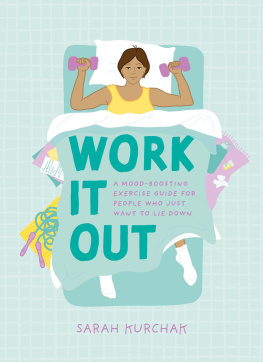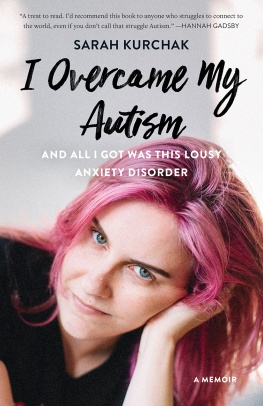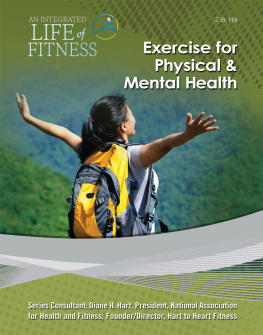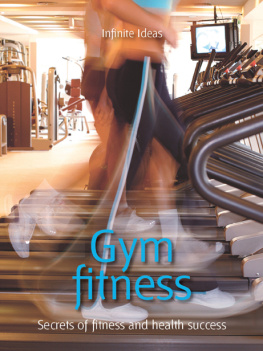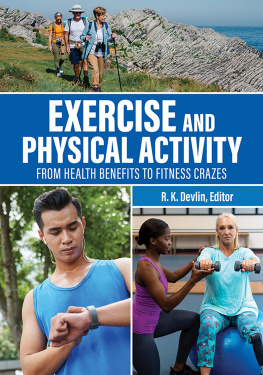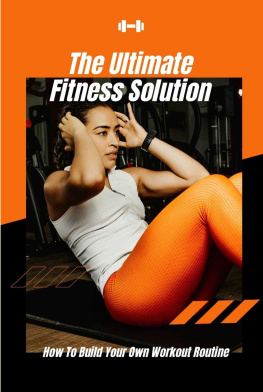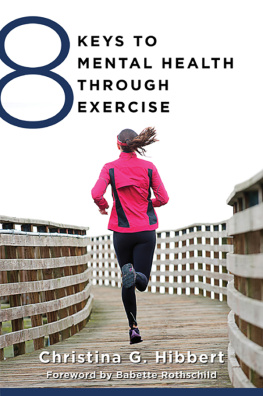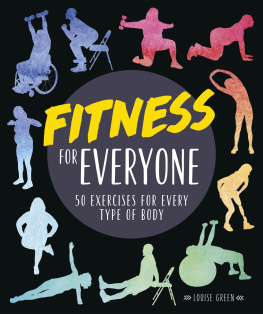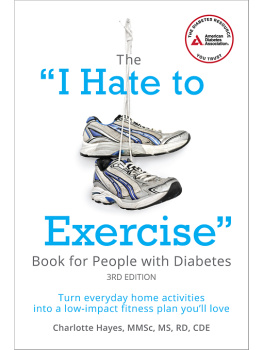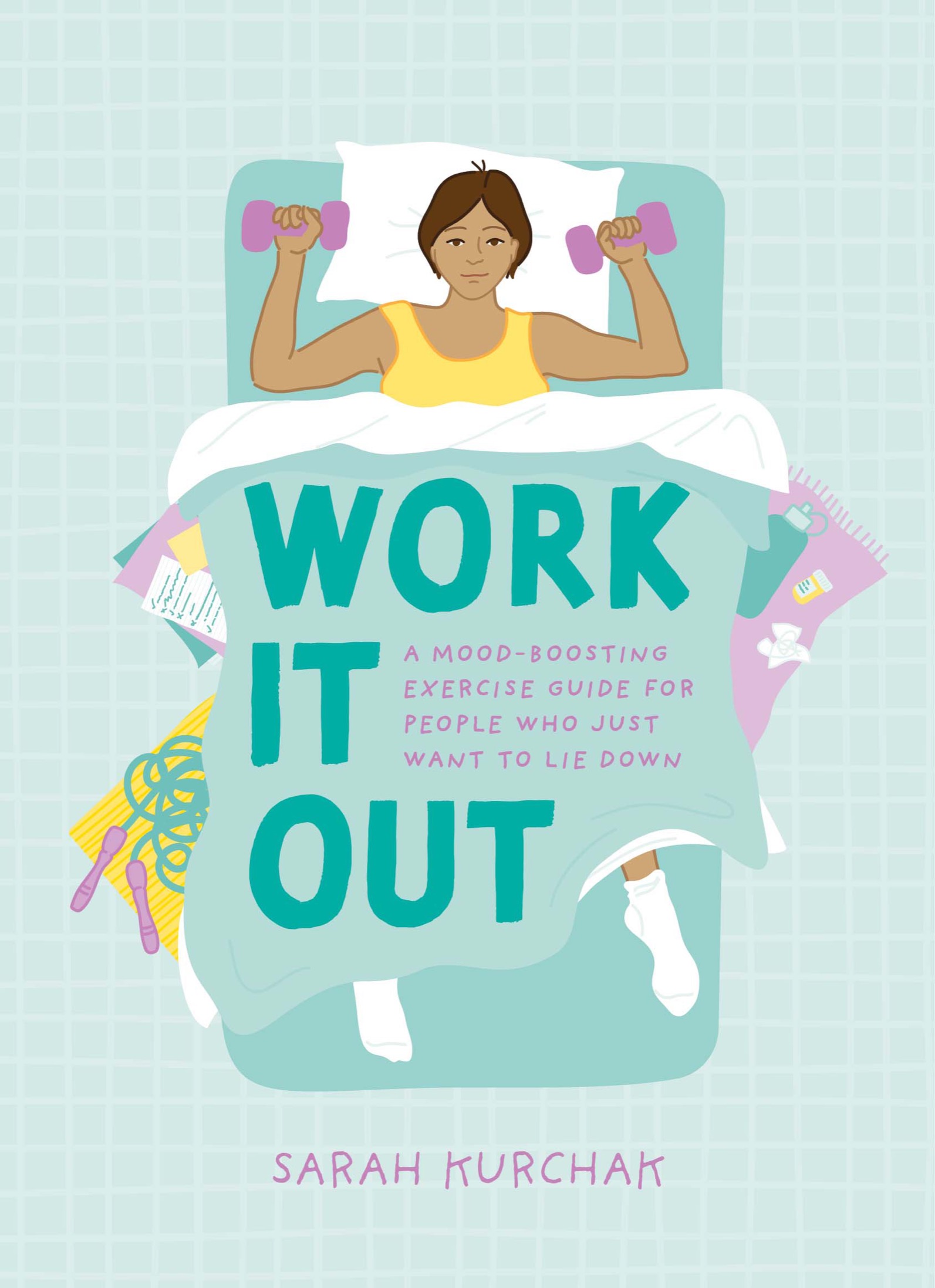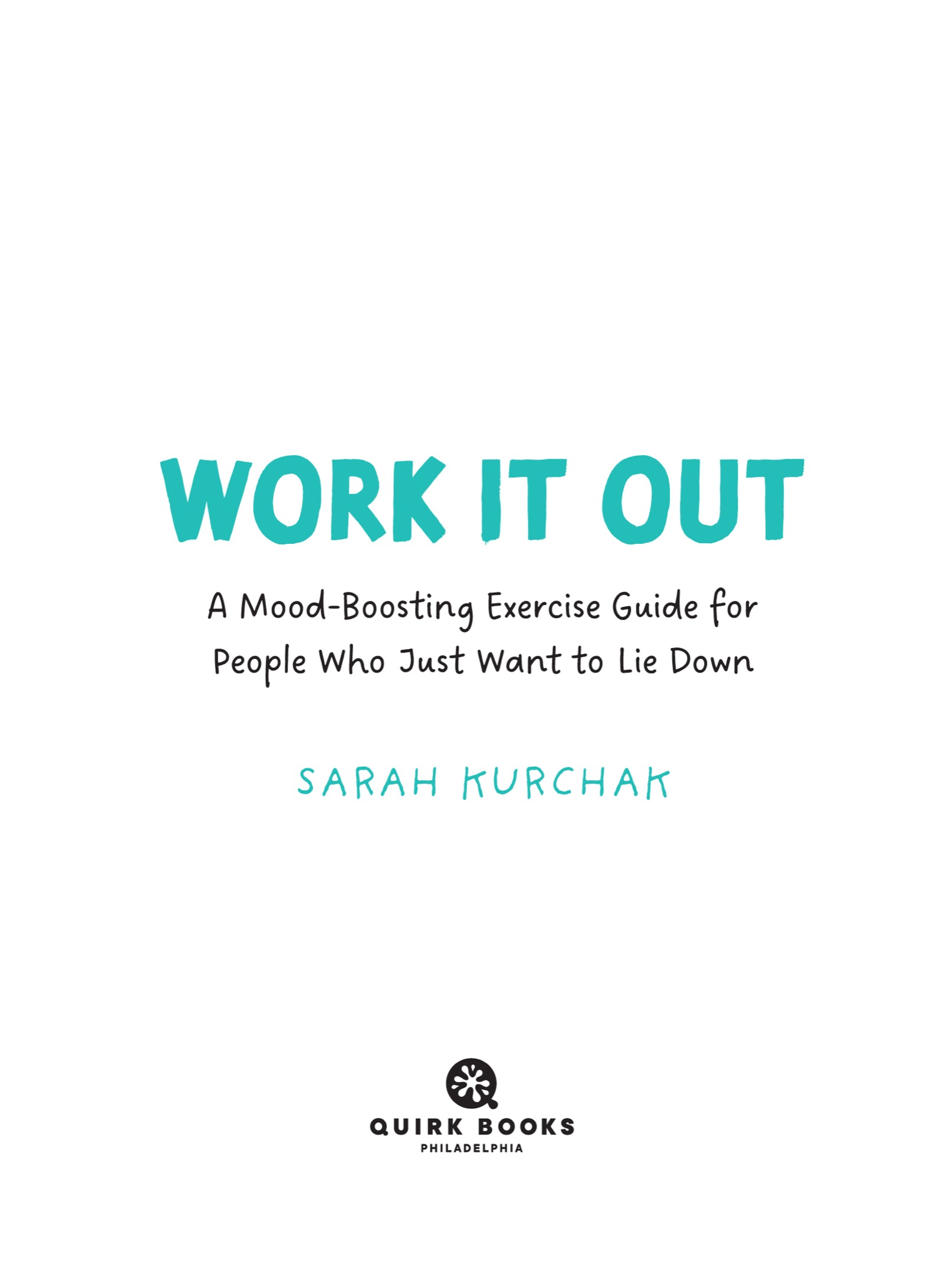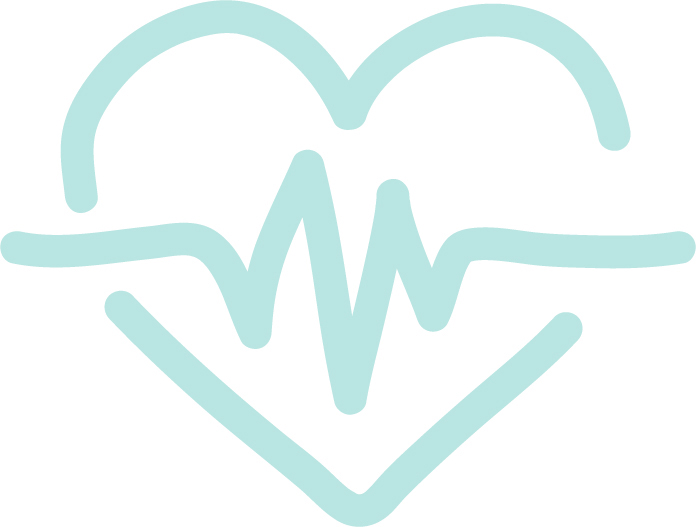Copyright 2023 by Quirk Productions, Inc.
All rights reserved. Except as authorized under U.S. copyright law, no part of this book may be reproduced in any form without written permission from the publisher.
Names: Kurchak, Sarah, 1982- author.
Title: Work it out : a mood-boosting exercise guide for people who just want to lie down / Sarah Kurchak.
Description: Philadelphia, PA : Quirk Books, [2023] | Summary: A guide to incorporating exercise into daily life to improve mental health. The book dispels fitness myths and provides practical advice for building adjustable workout plans, celebrating even minor achievements, and knowing when to rest Provided by publisher.
Identifiers: LCCN 2022038847 (print) | LCCN 2022038848 (ebook) | ISBN 9781683693291 (paperback) | ISBN 9781683693307 (ebook)
Subjects: LCSH: ExercisePsychological aspects. | Physical fitnessPsychological aspects. | Mental health promotion. | Mind and body. | Motivation (Psychology)
Classification: LCC GV481.2 .K87 2023 (print) | LCC GV481.2 (ebook) | DDC 613.7/1019dc23/eng/20220921
Production management by John J. McGurk
INTRODUCTION
Have you tried exercise?
If youve ever had less than 100 percent perfect mental health, there is a very good chance that some well-meaning person has said this to you. Theres an even better chance that some smug and not so well-meaning types have said it, too.
Im going to take a wild guess and assume that this terribly helpful advice did not fix you.
The problem isnt exercise. It is true, unfortunately, that any physical activity done with any regularity has the potential to improve your mood. Its not a miracle cure or an all-purpose substitute for other interventionsyou should not, under any circumstances, drop everything else youve been doing to take care of yourself and give me twenty. But exercise can provide focus, routine, comfort, and even a boost to physical health when it feels like everything else is going to hell. And yes, it can make you feel less like shit.
During the ten years I worked in the fitness industry, I saw a number of clients who had depression and anxiety, and I witnessed the positive influence that our workouts had on their lives. Ive also felt the mental benefits of physical movement for myself. Im not a fan of big, sweeping statements about the power of fitness. I find that kind of overly plucky talk grating and alienating. But its fair to say that discovering workouts that I enjoyed and regularly doing them has played a part in keeping me alive. And Im not talking about their effect on my cardiovascular system.
Exercise can help people who are dealing with anxiety and depression. But telling them that exercise can help? Thats one of the most useless things in the history of fitness. And the history of fitness has given us homeopathic sports supplements, ab-toning belts, magic seaweed yoga pants, and kettlebell routines for stationary bikes.
Have you tried exercise? (or, perhaps even more inescapable, Have you tried yoga?) is annoying and insulting. Of course youve tried exercise! Its not new. Its ability to boost mental well-being was not obscure or privileged information that had never been imparted to you before some rando decided that the best response to your struggles was, in essence, Bummer, try jogging that off.
It also completely fails to understand the crux of the issue. Most people who are dealing with conditions like anxiety and depression are already awareoften too awareof the things we could or should be doing to make our lives better or more manageable. But knowing what you should do, or even what you want to do, and not being able to do it is kind of a big part of the whole being anxious and depressed thing.
When I started researching the topic for my clients and myself, I noticed that most of the accessible articles and information involving exercise and mental health fell into that same trap. The fitness industry is filled with lifehacks for depression, but most of it seems to be coming from a place of ignorance about the cold war going on in the average depressed persons head. The introductions talk about how great exercise is for you, and then they jump straight to tips on motivation, routine, and the physical activity itself. Those tips arent necessarily wrong, but when youre suffering, theyre not realistic.
Moving our bodies within their capabilities is a fundamental part of life. It can be a source of physical and mental well-being. It should be a source of joy. But so much of the information about how you can do it and the venues to do it in is patrolled by a culture that prefers competition, punishment, and shame. Theres clearly a huge need for exercise research, programming, and resources that understand depression. But theres also a need for resources that appreciate how alienated so many people feel from fitness cultureand, indeed, from their own bodies as a result of fitness culture. And theres a desperate need for people with any authority in that realm to acknowledge how hard it is for so many of us to just try exercise, especially when people are already working so hard to stay alive.
With this book, I have an opportunity to do my small part to answer those needs. Ive included practical tips for how to find physical activities that you dont hate, how to integrate them into your life, and how to do them safely. I also talk about how and why exercise can help you, how and why it often ends up hurting you instead, and what you can do to try to break that cycle. And Ive woven a bunch of validation and encouragement throughout. If youve ever needed an outside source to confirm that getting into exercise isnt easy, that the fitness industry is kind of full of it, and that youre doing your best, its all there for you. From a former fitness professional, no less, if that helps you take it to heart or gets some judgmental dick off your case.
Ive written with a focus on people with depression and anxiety, because thats what I have the most experience with and thats the population I feel most assured addressing directly. But I believe there is plenty of material here that can be useful to any neurodivergent person. Or anyone who is just a little sad, for that matter.
My goal is to help you feel better, so Ive eliminated the aspects of fitness that only make people feel worse. Theres nothing about diets in here. On a professional level, Im unqualified to give advice. On a personal note, I hate them. Theres definitely nothing about weight loss. The only time Ill discuss weight at all is to acknowledge how abusive and unscientific fatphobia is.
There are other absences from the book that are less righteous, though. The big one, for me, is modifications. I am a huge fan, and I discuss them in a general sense. I encourage you to adapt exercise moves to meet your bodys needs instead of the other way around. I remind you that modifying exercises is not cheating and even so-called easy versions can offer new challenges and results. But I dont have the space to include every adaptation for every ability level and for every disability that the trainer in me would love to. Youll have to bring awareness of what your body can and cant dobut what you have from me is blanket permission to skip anything that feels bad in a way that never winds up feeling good. (Or to skip exercise entirely, if its negative effect on your body is worse than its positive effect on your mind. For instance, exercise may be harmful for people with injuries or chronic conditions. If thats you, check in with your body and your doctor before listening to some book!)

